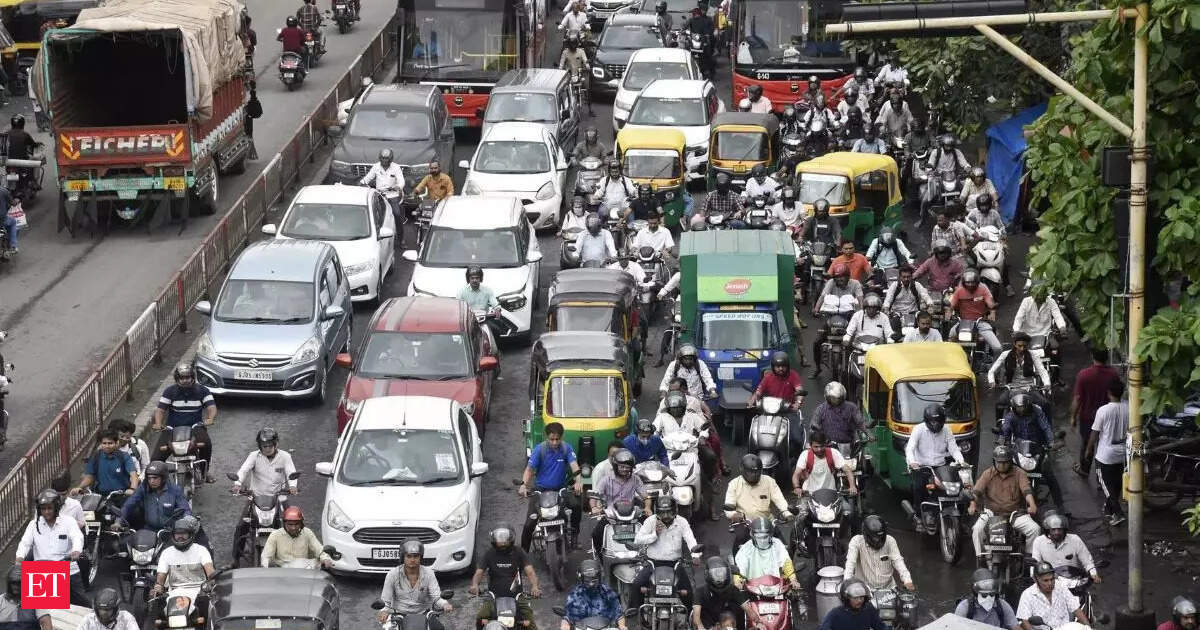Now Reading: August Vehicle Sales Up 2.8%, GST Cuts Fuel September Optimism: FADA
-
01
August Vehicle Sales Up 2.8%, GST Cuts Fuel September Optimism: FADA
August Vehicle Sales Up 2.8%, GST Cuts Fuel September Optimism: FADA

Fast Summary
- Total vehicle retail sales in August grew marginally by 2.84% year-on-year,marking a sluggish increase,and showed no meaningful change month-on-month (+0.02%).
- Passenger vehicle sales rose slightly to 3,23,256 units in August from 3,20,291 units the previous year (+0.93% year-on-year). Though, passenger car sales fell 1.63% month-on-month.
- Two-wheeler retail sales saw a modest increase of 2.18% year-on-year to reach 13,73,675 units in August but were impacted by postponed purchases due to upcoming GST cuts and festivals.
- Three-wheeler retail sales declined by 2.26% compared to the same month last year.
- Commercial vehicle segment showed an annual growth of 8.55%,with total sales at 75,592 units.
- Tractor retail sales experienced significant growth of 30.14% year-on-year but fell by 3.95% over the previous month.
- FADA noted high customer inquiries across segments; however, actual deliveries were deferred as buyers awaited GST discounts effective from september onwards.
- Dealers anticipate robust demand during India’s festive season (Onam to Ganesh Chaturthi) spurred further by tax reductions under “GST 2.0.”
- FADA predicts September will be divided into two phases: muted demand initially owing to Shraddh ritual periods and strong recovery later driven by Navratri/Durga Puja auspicious occasions coupled with government reforms.
Indian Opinion Analysis
The latest data underscores slow growth within India’s automobile sector despite seasonal trends that historically induce higher consumer sentiment this time of the year-driven largely due to a combination of postponed purchases ahead of GST rate reductions and festive buying cycles aligning around September onwards.
Prominent variations among categories suggest differing market dynamics: while tractors demonstrated remarkable yearly growth (30%), commercial vehicles also continued an upward trend at over +8%. Though slight declines or stagnation across other crucial segments-two-wheelers being one example-reflect current transitional conditions limiting broader gains.FADA’s optimism about heightened consumer activity reflects key structural transitions bolstered by favorable policy incentives like “GST-aligned schemes.” If timed well alongside India’s culturally significant shopping calendar (Navratri-Diwali), manufacturers may see converted momentum propelling greater contributions sector-wide next quarter




























